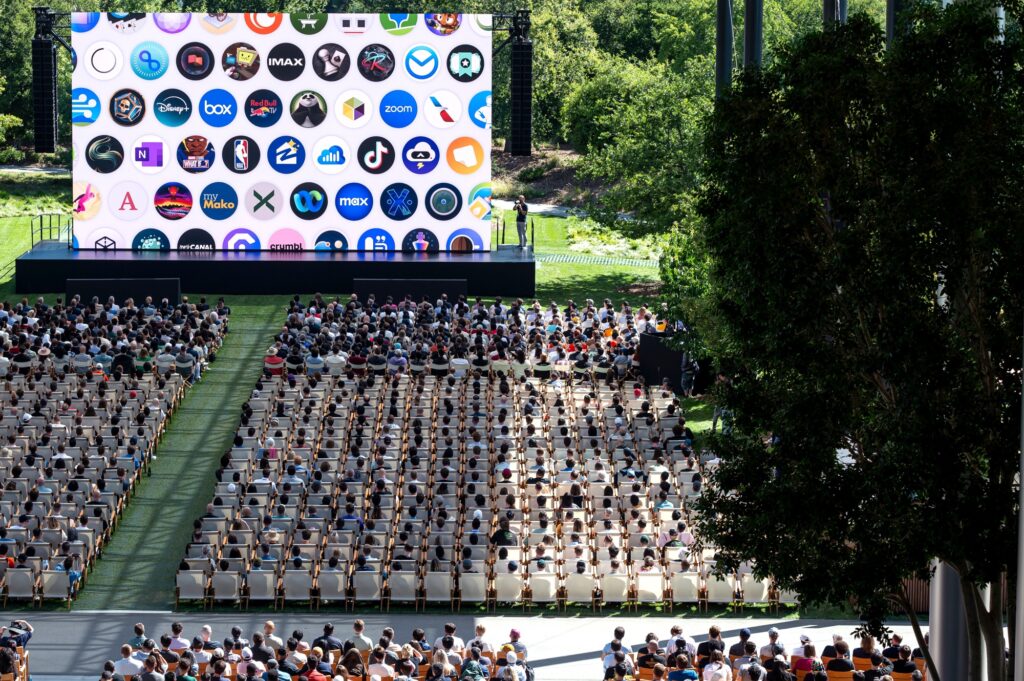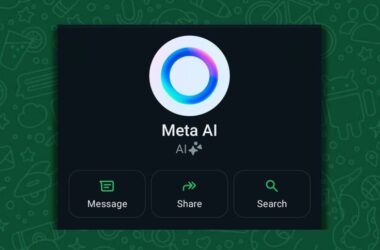Apple is embracing artificial intelligence (AI) with a number of future iPhone capabilities including a partnership with ChatGPT.
Furthermore, the AI technology that will be included in free software upgrades later this year is being marketed as “Apple Intelligence,” a move appropriate for a firm renowned for its marketing acumen.
During its World Wide Developers Conference, Apple implicitly admitted that it needs assistance catching up to firms like Microsoft and Google, which have emerged as the early leaders in AI, even as it strove to put its own imprint on the hottest field of technology. Apple is using ChatGPT, developed by San Francisco firm OpenAI, to improve the intelligence and usefulness of Siri, its frequently uncooperative virtual assistant.
This is the next big step for Apple, and it goes beyond artificial intelligence; it’s personal intelligence,” stated CEO Tim Cook.
All iPhone users will be able to access Siri’s optional gateway to ChatGPT for free, and as it’s integrated into the upcoming Apple operating systems, it will also be accessible on other Apple devices. When utilizing the iPhone, ChatGPT subscribers should be able to effortlessly sync their current accounts and should have access to more features than those who utilize the service for free.

OpenAI CEO Sam Altman sat in the front row of the jam-packed conference, which attracted developers from more than 60 nations, to announce the partnership with Apple.
People may now more easily take advantage of AI’s potential thanks to our partnership with Apple,” Altman said in a statement.
Beyond letting Siri access ChatGPT’s vast knowledge base, Apple is giving its 13-year-old virtual assistant a comprehensive makeover aimed at making it more approachable and adaptable, even though it currently handles roughly 1.5 billion requests daily.
This fall, when Apple offers free updates to the operating system that powers the iPhone and other products, Siri will flash lights around the borders of the screen to indicate its presence. Based on Monday’s presentations, it will have the capacity to perform hundreds of thousands more jobs than it can presently, including ones that might involve using third-party gadgets.
Apple’s AI Revolution: Transforming Devices and User Experience
Only more recent iPhone, iPad, and Mac models will be able to utilize Apple’s entire suite of forthcoming capabilities because these models need more sophisticated processors. To fully utilize Apple’s AI package, for example, users will need to purchase the upcoming iPhone model or purchase last year’s iPhone 15 Pro. However, all of the capabilities will function on Macs manufactured before 2020 as long as the newest operating system is installed on those machines.
In addition to providing access to creative tools that may liven things up, the AI-packed changes that are headed to the upcoming versions of Apple software are intended to help the billions of users who use the company’s devices accomplish more in less time. Apple, for example, plans to use artificial intelligence (AI) to enable users to instantly generate emojis, or “Genmojis,” that correspond to the mood they want to express.
Senior vice president of software engineering at Apple, Craig Federighi, told reporters that the company’s AI mission is “to empower users, not replace them.” In order to disable any AI tools they do not want, users will also have the opportunity to access the device settings.
With the debut of AI, a technology that is predicted to be as transformative as the 2007 launch of the Phone, Monday’s display appeared to be an attempt to allay fears that Apple might be losing its competitive advantage. Samsung and Google have already introduced smartphone models that highlight AI features as their primary selling points, while Apple has been experiencing an unusually long period of declining sales.
Nvidia, the leading manufacturer of the semiconductors that underpin the technology, has seen its market value soar from over $300 billion at the end of 2022 to approximately $3 trillion, primarily due to AI craze.
Nvidia overtook Apple as the second most valuable firm in the United States thanks to its explosive growth. Because of its so-far successful foray into artificial intelligence, Microsoft also overtook the maker of the iPhone earlier this year.
The audience that flocked to Apple’s Cupertino, California, headquarters to witness the company’s AI presentation appeared to be more impressed than investors. On Monday, Apple’s stock price fell by almost 2%.
Apple is “taking the right path,” according to Wedbush Securities analyst Dan Ives, despite the unfavorable response. For a corporation that has already revolutionized the tech sector and society, he praised the presentation as “historical.”
Not only did Apple reveal some AI tactics during the conference, but it also confirmed that it will be introducing Rich Communications Service, or RCS, to its iMessage app. Texting between iPhones and Android-powered devices—like the Samsung Galaxy and Google Pixel—should become more secure and of higher quality thanks to this technology.
The blue bubbles that indicate texts sent from iPhones and the green bubbles that indicate texts received from Android devices—a distinction that has given rise to social stigma—will remain in place after the update, which is expected to be released with the upcoming version of the iPhone operating software.
Another planned feature of the iPhone messaging app will allow users to compose texts ahead of time using AI tools or to write them themselves and schedule them to be sent automatically at a specified time.
With its presentation on Monday, Apple made waves at its developers conference for the second year in a row by introducing a cutting-edge technology that other businesses had already started using.
An early preview of Apple’s mixed-reality headgear, the Vision Pro, was given last year; it wasn’t available until early 2024. However, Apple’s foray into mixed reality, which it refers to as “spatial computing,” has stoked expectations that consumers will become more interested in this specialized field of technology.
That optimism is partially based on Apple’s track record of introducing technology later than competitors and then making up for it with stylish designs and clever marketing strategies.

Adding more AI to the iPhone is likely to spark privacy concerns, a subject on which Apple has made tremendous efforts to reassure its devoted users that it won’t snoop too far into their personal lives. On Monday, Apple did discuss in great detail its attempts to create robust privacy safeguards and controls surrounding its artificial intelligence technology.
Apple is attempting to reassure customers that their iPhones won’t be used for eavesdropping by utilizing chip technology to handle the majority of AI-powered features on the phone itself rather than at distant data centers, sometimes referred to as “the cloud.”
Apple claims that its “private cloud,” which is designed to protect user privacy, will handle jobs requiring AI that require more processing power than what the device can provide.
Federighi stated that Apple’s AI “will be aware of your personal data without collecting your personal data.”




